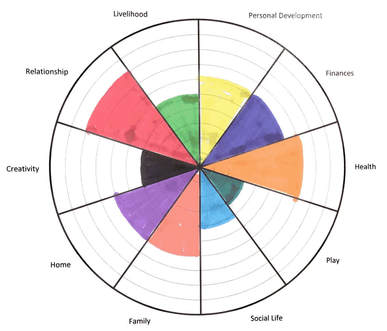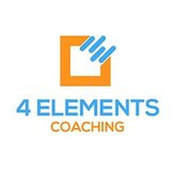|
The term "coaching" has expanded outside the realm of athletics into an applied science that can help people lose the stress and gain the goals.
- by Tina Richardson
Timothy Gallwey, author of the Inner Game of Tennis said “There is always an inner game being played In your mind no matter what outer game you are playing. How aware you are of this game can make the difference between success and failure in the outer game”
In the 1970s, Timothy Gallwey taught tennis lessons by telling students what they were doing correctly and incorrectly. He eventually learned that teaching by "dos and don'ts" created a high level of stress that negatively impacted performance. His solution was to approach teaching by looking at it from the student's perspective. Gallwey developed a method of teaching using non-judgmental thinking and having the students focus on three things: imagining what they wanted to do, trusting themselves, and concentrating. The method worked so well that subsequent books on Inner Games - mostly related to sports - were published. For a number of years Gallwey has been applying his method of teaching to corporations and individuals. He feels that the key is not to teach, but to help the student learn and to facilitate that process. This process is called "coaching" because it gives the client the tools and support to have fresh perspectives on all areas of their life, instead of telling them what or what not to do. The YouTube video below presents an excellent explanation of how coaching enhances decision-making skills, improves interpersonal effectiveness and increases confidence.
Life coaches are trained and accredited. They are members of organizations like the International Coach Federation. Laurie Johnson lives here in Bay Saint Louis, Mississippi. She is a life and business coach who is certified as an Associate Certified Coach with the International Coach Federation and a member of the Gulf Coast ICF Chapter. “After Katrina I was feeling like I had lost my passion for almost everything I was doing," Laurie said, explaining why she was drawn to professional coaching. “I felt stuck. One day at the library I found an audiobook by a coach named Cheryl Richardson called Finding Your Passion. I listened to it and was intrigued by the idea of hiring a coach." Laurie followed through with professional coaching and soon found herself moving forward and "waking up" to things that were truly important to her. Laurie then decided to become a coach herself to help her nonprofit clients and women entrepreneurs. Through her business, 4 Elements Coaching, Laurie also coaches people who are transitioning to new careers, entering a leadership/managerial role, or just trying to discover what they want to do in retirement. Some of her clients are looking for help with the “stuff” that everyday life brings - like caregiving, relationship challenges, or work/life balance. Laurie is also a program advisor for a coach training school called InviteCHANGE and one of the creators of the Women's Entrepreneurs program with the Gulf Coast Chamber of Commerce.  Sample of how a self-assessment might look on a wheel of balance. Sample of how a self-assessment might look on a wheel of balance.
The coaching process usually starts out with an assessment of your life as it is now. On a scale of 1 to 10 - with 10 the highest rating - you'll rate your experience in the life areas shown in the graphic. Just that simple assessment can show you what needs more attention.
A coach can help you achieve that balance by helping you find your goals and then focus on them. You'll explore your direction in life, establish clear short-term goals, and learn to use tools like time-management, prioritization and affirmations to manage stress, debt, and self-confidence. In short, coaching can assist people in transforming dreams into reality. “The client does the work of discovering and integrating," Laurie said. "Active listening, thoughtful questioning, and reflecting are the three key areas in which I spend most of my coaching time.” If you're interested in exploring life coaching, you'll find FAQ's on the website of the International Coach Federation. Many coaches offer free introductory sessions, as does Laurie Johnson of 4Elements Coaching. Comments are closed.
|
Categories
All
Archives
July 2024
|
Shoofly Magazine Partners
Our Shoofly Partners are local businesses and organizations who share our mission to enrich community life in Bay St. Louis, Waveland, Diamondhead and Pass Christian. These are limited in number to maximize visibility. Email us now to become a Shoofly Partner!




























 RSS Feed
RSS Feed























